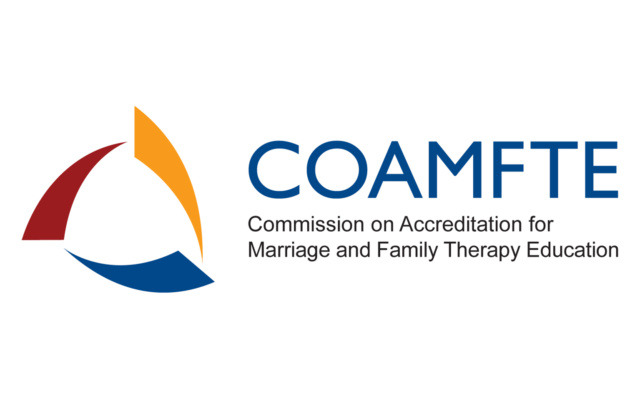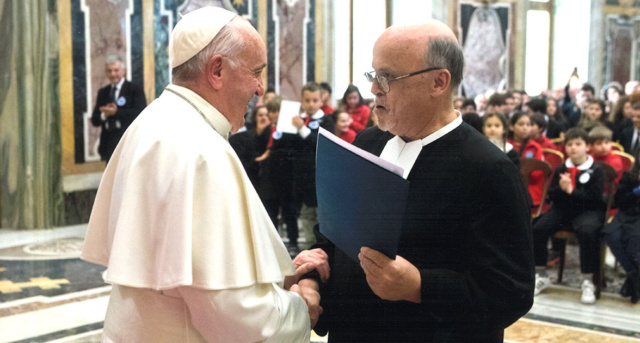La Salle University

RSVP for a Virtual Info Session
Tuesday, June 10 at 1 p.m.
Join us to hear directly from La Salle faculty, ask questions, learn about our unique clinical and research opportunities.
What You’ll learn
The Marriage and Family Therapy program at La Salle progresses from a knowledge base of core courses in systems theory to a sequence of skills courses in assessment and intervention, to actual clinical practice, completed in a 12-month clinical placement in the final year. The required courses fulfill the educational requirements for licensure in the state of Pennsylvania and most other states, as well as for clinical membership in the American Association for Marriage and Family Therapy.
Why Study Marriage and Family Therapy at La Salle?
La Salle’s MFT degree prepares students for licensure as marriage and family therapists (LMFT) in Pennsylvania and most other states and for employment in many professional settings. Upon graduation from the program, students meet the education eligibility requirement for the national exam for licensure. The MFT degree also is excellent preparation for those students planning to pursue doctoral studies in marriage and family therapy or a related field.
Highlighted Courses
PMFT 505 Systems and Systemic Thinking
This course provides the student with an overview of systemic concepts and systemic functioning. It includes structure, development, health, and dysfunction from traditional systemic theoretical constructs and approaches. Particular emphasis is placed on acquiring a systems perspective and applying that perspective to families and other systems.
PMFT 608 Therapeutic Approaches for Children and Adolescents
This course is designed to provide an understanding of working with children, adolescents, and their families. It will focus on treating a variety of presenting issues, as well as provide several theoretical perspectives for working with families with children and/or adolescents. We will explore many clinical interventions for working with youth of varying ages, and the course will include play therapy. Students will have many experiential opportunities to learn about play therapy techniques and interventions. Careful attention will be paid to ethical issues, laws regarding mandated reporting, duty-to-warn, when treating children and adolescents, as well as cultural and diversity issues will be addressed.
PMFT 628 Understanding Relationships
This course examines human relationships with particular reference to their various forms, functions, and patterns of development. The processes of attachment, separation, individuation, and differentiation are highlighted and are used in a contextual (systemic) framework to examine each relationship. Special emphasis is placed on the clinical applications of this knowledge to couples and families. The student is required to complete a study of one of his/her primary dyadic relationships.
Meet the Faculty
Our faculty possesses a wide range of disciplinary expertise dedicated to teaching, scholarship, and service, bringing their clinical and research experience into the classroom.
Career Opportunities
According to BLS, the mean annual wage for MFTs is $54,590 nationally and $62,140 in Pennslyvania. BLS expects employment opportunities for MFTs to rise by 22% by year 2028.
Application Process
The Marriage and Family Therapy Program has some additional requirements beyond the typical application process. Find more information through the link below.
Accreditation
The Marriage and Family Therapy Program at La Salle University is accredited by the Commission on Accreditation for Marriage and Family Therapy Education (COAMFTE) of the American Association for Marriage and Family Therapy, 112 South Alfred Street, Alexandria, Virginia 22314, Tel. No. 703.838. 9808. This accreditation is a measure of the program’s excellence. With it comes national recognition as one of the nation’s premium MFT training programs. AAMFT’s Commission on Accreditation for Marriage and Family Therapy Education (COAMFTE) is the nationally recognized accrediting agency that accredits master’s degree, doctoral degree, and post-graduate degree clinical training programs in marriage and family therapy throughout the United States and Canada.

I felt that the faculty and staff truly cared about each students’ development and success and that was something I really appreciated. I am very grateful for my experience at La Salle and I would choose La Salle again if I could.

With great sadness, La Salle University joins the Catholic Church in mourning the passing of Pope Francis. He died on April 21, 2025, at the age of 88 in Rome.

The votes are in: La Salle University takes the gold—once again—in the colleges and universities category of The Philadelphia Inquirer Philly Favorites competition, making it a back-to-back winner.

La Salle accounting and finance major Hammed Fofana, ‘25, is channeling ambition and experience into career capital.